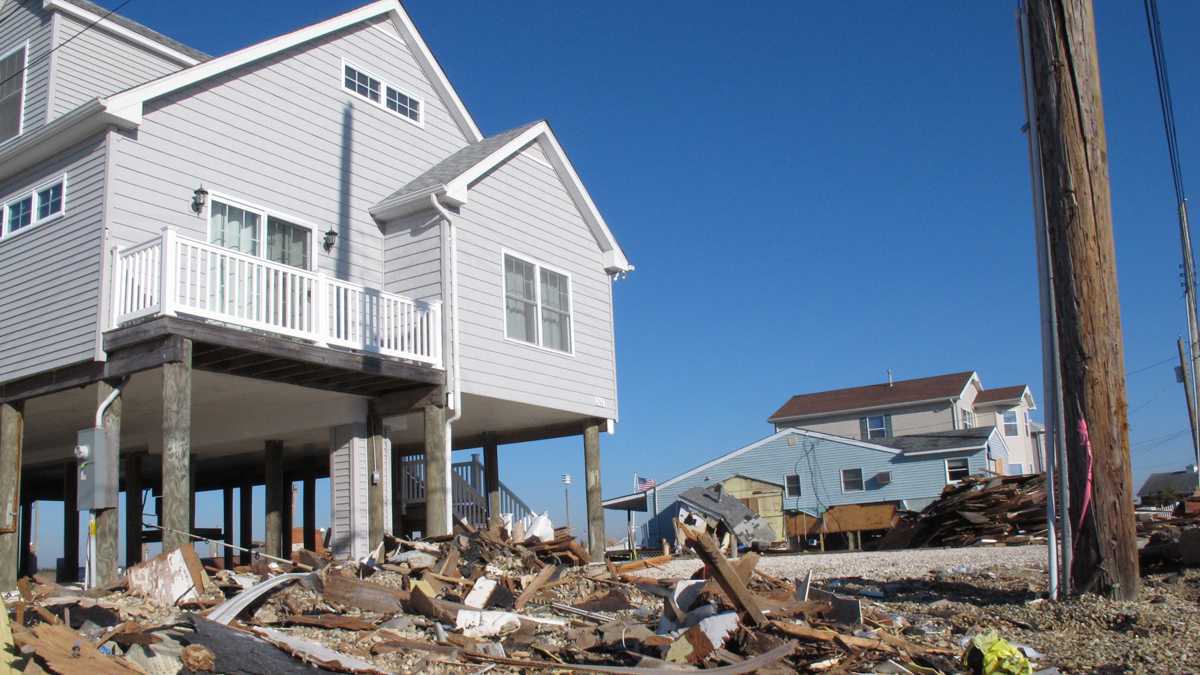FEMA to reopen 140,000 Sandy claims as new task force presses for reforms

This file photo shows how the home on the left in Tuckerton, N.J., emerged from Superstorm Sandy intact, while the home to the right was severely damaged. FEMA has agreed to reopen more than 140,000 claims from people who say they were drastically underpaid by the federal flood insurance program for Sandy damage. (Wayne Parry/AP Photo)
Lawmakers and nonprofits launched the Superstorm Sandy Task Force in Washington Tuesday as a way of pressuring the government to provide more assistance to storm victims, while also looking at ways to reform the nation’s flood insurance program.
FEMA has agreed to reopen more than 140,000 claims from people who say they were drastically underpaid by the federal flood insurance program for Sandy damage.
U.S. Sen. Bob Menendez from New Jersey said the process has been unfair.
“Your government failed you, and you deserve much, much better,” he said.
FEMA Administrator Craig Fugate understands the failures. Part of the problem, he said, is that to be fiscally prudent, the Federal Flood Insurance Program relies on software that focuses on not overpaying homeowners.
“It’s got to be built around the people you’re serving. And we need to engineer the process to be fiscally sound, and correct in that,” he said. “But it shouldn’t be easy for us to administer and impossible for you to get what you’re owed so you can rebuild.”
Victims of the storm also are begging for more local control when recovering from future storms. Sue Marticek, who heads the nonprofit Ocean County Long Term Recovery Group, called on the federal government to provide funding for local nonprofits after storms hit because they’re closer to the people.
“Because the business and the government — they’re not true advocates, and right now it seems as though the field is tilting and it’s tilting away from the homeowne,” she said. “So I think adding a funding stream for nonprofits after an initial disaster to each and every state would be a great starting point.”
The task force is also examining potential reforms for how the nation responds to widespread floods.
WHYY is your source for fact-based, in-depth journalism and information. As a nonprofit organization, we rely on financial support from readers like you. Please give today.




